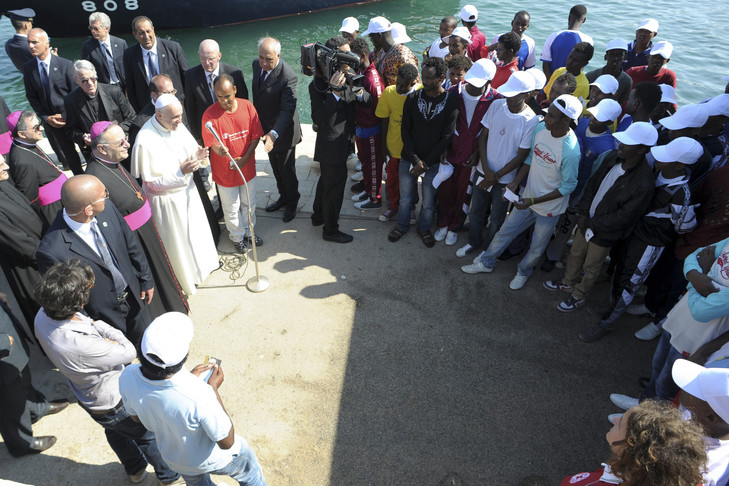Interview with Enrico Letta, former Italian Prime Minister, Director of the School of International Affairs from Sciences-Po Paris.
How summarize the view that Pope Francis is on Europe?
Enrico Letta: The most effective synthesis is this expression of “grandmother Europe,” he delivered in Parliament in Strasbourg in November 2014. It is fraught with meaning because it evokes an aging continent, a demographic but also cultural point of view. It also highlights the fact that Europe lacks dynamism and is not able to be a reference point in the world. The issue of demography also refers naturally to migration. What a scathing message “grandmother Europe” is the basis on which develops the vision of Pope Francis about Europe.
John Paul II had done much against the East-West divide in Europe and Benedict XVI against secularisation. What is the largest European construction of Francis?
E. L.: The issue of migrants in the Mediterranean is to Francis that Eastern Europe and the Berlin Wall was for John Paul II. The first visit of his pontificate in Lampedusa (in July 2013, Ed) was a message both very strong and universal on the subject.
The situation of migrants in Europe has worsened since that visit. Francis should renewed his message?
E. L.: In Lampedusa, he was prophetic, but at the bottom he was never heard on the issue of migrants. It is necessary that the idea of the need for solidarity must be stronger and, for that, it would be very important that the Pope sends a new message to the Europeans scathing. The issue of migrants is a test bed for the Church, which allows to see if she is able to pass from words to action in solidarity. That would be helpful to place the rest of the European political and institutional system face its responsibilities.
The UK is preparing to vote on its maintenance within the European Union (EU). Francis Should appeal to unity?
E. L.: In a way, he has already spoken on the issue by appointing a British (Paul Richard Gallagher, Ed) as Secretary for Relations with States. This is a very unexpected choice and very strong, shocking enough to the Vatican balances. In my view, it constitutes a very clear message on the need to maintain the UK within the EU.
Beyond the message, can the Pope accomplish in Europe a diplomatic action in the same scope as he has, for example, conducted in America, contributing to the thaw between Cuba and the United States?
E. L.: The action of the Pope to Cuba is exceptional and can not be a yardstick. On Europe, launching messages that I mentioned and others on youth and the environment, he entered in the heart of the major issues that cross the continent, divided or torn apart by an east-west policy divide and a North South economic divide.
In my view, in Europe, the challenge for the pope is less to speak to leaders as public opinions, on which he can have a big influence. If the leaders of Central Europe as Viktor Orban and Robert Fico have expressed inimical views to the reception of migrants, because they felt compelled to go there by their public opinion. But by teaching, the Pope and the Church can play a decisive role on these opinions.
Translate from french.
Read the full article (in french) on La Crois website
